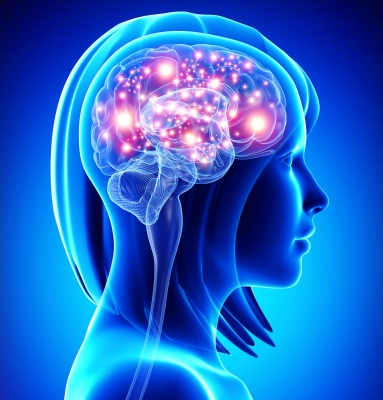6 Interesting Quirks of the Brain-Body Connection
When you think about it, brains are strange. They keeping your organs working and monitor the environment for danger. Basically, it keeps you alive. Yet the brain is also able to randomly pop up the lyrics to decades-old one-hit wonders. You can crack some of the mysteries of the brain by understanding the basics of neuroscience. But interesting brain-body connections still bring up tantalizing questions.
You’ve come to the right place to find your answers about how the brain and body work together. The six fascinating questions explored below help provide enhanced perspective about the brain-body connection.
Is the Brain Involved in Every Single Process and Function of My Body?
The short answer is yes. You would think your brain needs to delegate sometimes. But the brain monitors and reacts to changes everywhere in your body—and in your environment.
That doesn’t mean you’re conscious of all that’s going on.
Paying attention to every little function of the body would drive you insane. That’s why many functions are basically automated—especially those that keep you alive. It’s the reason you don’t have to think about moving your food through the digestive system, regulating blood flow, or consciously convert light into images.
So your brain is involved in everything, but thankfully, your conscious attention isn’t always needed.
Does the Brain Communicate Directly with the Whole Body?
The answer depends on what you consider direct communication. Your brain isn’t hopping on the body’s loud speaker to announce a wound cleanup on the finger you just cut on a piece of paper.
But the brain-body connection is built on solid two-way communication.
Your nervous system is responsible for relaying many of these messages. These nerve pathways allow probably the most traditionally direct communication—like the special connection of the gut-brain axis.
Your brain also uses chemical messengers. This can be done through the release of neurotransmitters or hormones—depending on the desired result.
Your stress response is a good example. Your brain senses stress and triggers the proper glands to release stress hormones like cortisol. These messengers tell the body to prepare for fight or flight—ramping up the physical sensations of stress you experience.
The methods may not be as direct and simple as anyone—especially those studying the brain-body connection—might like. But the communication methods are effective, which helps maintain health and happiness.
Are Parts of the Body Assigned Their Own Space in the Brain?
Your brain doesn’t have a Department of Bones or a Ministry of Arm Muscles. But different areas of the brain do specialize in certain functions.
Here’s how it breaks down (in alphabetical, not anatomical, order):
- Brain Stem: Your brain’s connection to the spinal cord is a hub for information and nerves throughout your head and body. It also contains the medulla oblongata, which participates in keeping your heart and lungs working properly.
- Cerebellum: Thank this part of your brain for any sports success you’ve had. Movement, fine motor skills, and balance are the responsibility of the cerebellum.
- Diencephalon: It contains the thalamus, epithalamus, and hypothalamus. Together, they’re involved in how you feel emotionally, how you sleep, what you remember, how you behave, and how your body maintains the status quo of homeostasis.
- Frontal Lobes: The front part of your brain helps you pay attention, strategize, judge, and solve problems. It also plays a role in your motor skills.
- Occipital Lobes: You’re reading this thanks to this area’s ties to vision.
- Parietal Lobes: Coordinating and making sense of information from your senses happens here.
- Temporal Lobes: This area helps you recognize people’s faces and emotions. It’s also a primary reason you can learn spoken languages.
Parts of the Immune System are Found Throughout the Body. Is the Brain Really Commanding all Those Immune Cells?
Your immune system is often described as an army patrolling the borders of your body. In that scenario, you may mistake the brain for their commanding officer. But the relationship isn’t s a strict chain of command.
It’s much more of a collaborative effort, with plenty of communication pathways between the brain and immune system. Your nervous system connects directly to the thymus and bone marrow where cells are produced, as well as the lymphatic system. The cells on the front line of immunity also have receptors for brain messages. And they signal the brain with cytokines.
What you have is a complex dance of sensing, communicating, and reacting that results in immune protection. Your brain and immune cells are perfectly paired because they’re programmed to respond to changes in your body and environment. So it make sense they work together to keep you feeling your best.
Does the Blood-Brain Barrier Interrupt Brain-Body Connection?
It does, but selectively so. The blood-brain barrier protects your central processing center from unsavory items circulating in your blood.
This is accomplished by clamping down the space between the endothelial cells lining blood-vessel walls. Larger molecules—especially toxins and pathogens—can’t pass. Oxygen, fuel, and other important molecules make it through. Cellular communication and an array of transport proteins also allow some flexibility for what can cross the barrier.
That means your brain has a way to protect itself from everything in the body. But this barrier doesn’t typically stop the normal processes of your brain-body connection.
Mind Over Matter is a Popular Mantra During Exercise. But is Your Brain Really Able to Overcome Physical Factors to Push You During Exercise?
Your heart pounds, a deep breath escapes you, and your muscles are gelatin. But a couple of minutes remain in your workout. Your body feels done. Your brain is helping you push through.
That’s because your body sends signals, and your brain decides how to interpret them. Your motivation and mindset come into play. Your experiences building resilience and endurance also determine how far your brain will let you push your body.
There is a point where you must stop. Your brain’s main concern is survival, and you do have physical limits. Reach a point where survival is threatened or you have too much lactic acid in your muscles to keep running, you won’t be able to push through that wall. But your brain does make it possible to go harder and further than you might think.
References
https://www.readersdigest.co.uk/health/wellbeing/5-things-your-body-does-without-you-thinking
https://www.livescience.com/22665-nervous-system.html
https://pubmed.ncbi.nlm.nih.gov/12910622/
https://www.ncbi.nlm.nih.gov/pmc/articles/PMC5866360/
https://www.nih.gov/news-events/nih-research-matters/gut-communicates-directly-brain
https://www.healthline.com/human-body-maps/brain
https://www.hopkinsmedicine.org/health/conditions-and-diseases/anatomy-of-the-brain
https://www.ncbi.nlm.nih.gov/pmc/articles/PMC4292164/
https://qbi.uq.edu.au/brain/brain-anatomy/what-blood-brain-barrier















